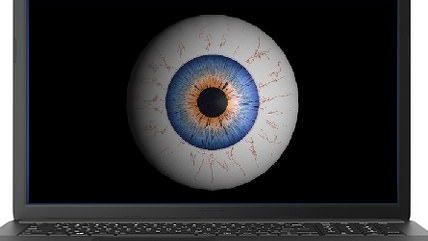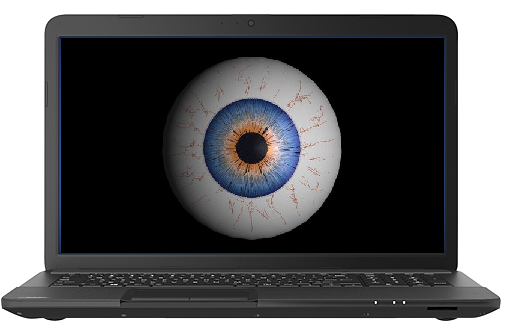New Effort to Scale Back NSA Surveillance Passes House Judiciary Committee
USA Freedom Act not nearly as strong as privacy advocates would like, but they're supporting it anyway.


A new attempt to scale back the mass domestic surveillance by the National Security Agency (NSA) is making its way through Congress. Today, H.R. 2048, the USA Freedom Act, passed through the House Judiciary Committee by a vote of 25 to 2.
If the name of the legislation is familiar, it's because it's the same name as a bill introduced last session to scale back NSA surveillance. It failed to pass the Senate. Sen. Rand Paul (R-Ky.) voted against the Act not because he is in favor of NSA surveillance (he's very much against it), but because the legislation did not go far enough in his opinion. He may still have a problem with H.R. 2048, because this version is even a little bit weaker than last year's effort, according to the Electronic Frontier Foundation (EFF). The EFF has a good explainer up today describing what the new version of the act does and does not do:
Similar to last year's bill, the new USA Freedom Act attempts to end the bulk collection of calling records under Section 215 of the Patriot Act by limiting collection to instances where there is "reasonable, articulable suspicion" that a "specific selection term" used to request call detail records is associated with international terrorism. The government must use a specific selection term, which represents an "individual, account, or personal device."
In plain English, the specific selection term is the basis for the query that the government uses when it collects records. A broad selection term ("People in California" or "People with Verizon phones") would mean massive record collection, but carefully constructed and defined specific selection terms would strictly limit the collection. That means this provision of the bill is extremely important. The text of USA Freedom Act is tightening the definition of specific selection term in a way designed to ensure only specific individuals, accounts, and devices qualify as specific selection terms. So the bulk collection of everybody's phone records? As far as we can tell, this should end that.
However, the definition of specific selection term is broader when it's used to collect tangible things other than calling records. In these cases, the term must be a "person, account, address, or personal device." The term must also limit the scope of these requests for information to the greatest extent possible, and cannot collect records that are overly broad, like those that relate to a geographic region or an entire electronic communications service provider.
But the legal justifications that allow for mass surveillance have become a massive multi-headed hydra, and this legislation would just chop through a couple of necks. There are many more, EFF warns:
This bill is focused on Section 215 telephone surveillance and FISA Court reform. However, much more must be done to end untargeted surveillance of innocent people both in the U.S. and around the world.
With respect to call detail records, it allows the NSA to get a second set of records (a second "hop") of individuals identified in the initial request's production that may still allow for the collection of records with less than "reasonable, articulable suspicion."
The new USA Freedom Act does not address Section 702 of the FISA Amendments Act, the problematic 2008 law that the government uses for PRISM and "upstream" mass surveillance. We remain committed to reforming Section 702 and will continue to fiercely fight against mass surveillance. We do think that success in enacting USA Freedom will help Congress move toward passing additional reforms to 702.
The new USA Freedom Act also continues to exclude meaningful protections for the rights of non-U.S. persons. Ultimately, ending bulk surveillance necessitates addressing Executive Order 12333, the primary legal authority the NSA uses to surveil non-Americans.
Finally, many of the problems we are facing today stem from rampant secrecy and lack of oversight. Surveillance abuses will not be resolved until our broken classification system—which shields matters of public importance from public scrutiny—is fixed.
EFF is encouraging legislators to support the act, but warns against weakening the bill even further. No weakening happened today: It passed the committee without amendments.
Read more about the current iteration of the USA Freedom Act here. A list of groups supporting the Act, which include major Internet companies like Facebook and Google, can be found here. Yesterday, Jacob Sullum reminded us all that now is the time to actually reform NSA surveillance, with the PATRIOT Act scheduled to expire at the end of May. Sen. Mike Lee (R-Utah) also wrote a commentary at the National Review explaining his support for scaling back NSA's surveillance powers.
Editor's Note: As of February 29, 2024, commenting privileges on reason.com posts are limited to Reason Plus subscribers. Past commenters are grandfathered in for a temporary period. Subscribe here to preserve your ability to comment. Your Reason Plus subscription also gives you an ad-free version of reason.com, along with full access to the digital edition and archives of Reason magazine. We request that comments be civil and on-topic. We do not moderate or assume any responsibility for comments, which are owned by the readers who post them. Comments do not represent the views of reason.com or Reason Foundation. We reserve the right to delete any comment and ban commenters for any reason at any time. Comments may only be edited within 5 minutes of posting. Report abuses.
Please to post comments


It's cute that they're pretending to do something about it.
Hey! It has freedom right in the name! How could it be bad?
OT: Just saw this on the Tweeterz....lulz
Rabiddogg ?@Rabiddogg 37s38 seconds ago No ones out at the ball game. no ones out in the crowd..Its loot loot loot for the home team. If we dont riot its a shame. #OriolesFightSong
Looks like International Jew went down the memory hole.
A new attempt to scale back the mass domestic surveillance by the National Security Agency (NSA) is making its way through Congress.
Thanks for informing all of us dummies what that acronym means, Shackford. But what does the Freedom Act have to do with going to the moon?
According to comments I read here the last version of this bill-the one Rand killed-basically entrenched the surveillance state more or less permanently and was the most hollow and pyhrric of victories. Is this bill the same? I hardly trust the hacks at the EFF to tell me so.
Does that?voting against something because it goes in the direction you want, but not far enough?holding out for something better, ever work? I would just assume the status quo to be the baseline from which all deviations are unexpected, and vote for anything that's even the tiniest bit better than the status quo, any time.